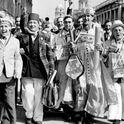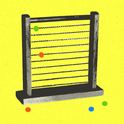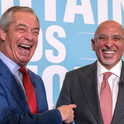Today's Foreign, Commonwealth and Topical Questions took place in the aftermath of last week's great parliamentary shock. Today's exchanges were rather subdued.
Sarah Newton (Cons, Truro and Falmouth) asked the Foreign Secretary for his assessment of how thing stood in Syria. William Hague told the House that UN estimates now put the number of Syrian refugees at 2m. Representatives of the Syrian National Government are visiting London next week for a meeting and the British Government continues to support "a strong international response," said Hague, deploying a formulation that allows considerable latitude for future change.
Hague also pointed out that Britain has given £348m of aid to Syria, the largest amount ever given by the UK. This aid took many forms, including equipment to protect wearers from gas attacks and also nerve agent tablets.
The Foreign Secretary also promised that the government would keep up its diplomatic efforts over Syria and that he was determined to push for a Geneva Peace Conference. The Prime Minister had discussed this possibility with Vladimir Putin only recently. However, he said, "Russia has proved immune," to conventional forms of diplomatic pressure, despite its apparent commitment to a peace conference.
The former Foreign Secretary Jack Straw then asked whether Iran should be involved in peace talks, to which Hague said that yes, "Iran playing a constructive role," would be a great help. But Iran has been "actively supporting the Syrian regime," said Hague. His comments on Iran were among the toughest of the session. Towards the end of Topical Questions, which followed these departmental questions, the Foreign Secretary described Iran as having participated in the "widespread murder," of Syrians by the Assad regime.
Douglas Alexander, the Shadow Foreign Secretary, then asked whether Lakhdar Brahimi, the UN special envoy on Syria, would be attending the forthcoming G20 meeting, and whether Hague could pressure Russia to put the Syrian question on the roster for discussion.
Hague pointed out that the G20 meeting is predominantly a forum given over to economic considerations, but that he was sure the Syrian situation would be discussed there.
Alexander only asked two questions, neither of which suggested a desire to attack the Government, or to extract political capital from the Syrian question. There was little sense of snap to these proceedings.
There followed questions on the peace process between Israel and the Palestinians and also on the chilling of relations with Spain over Gibraltar. This brought the only moment of levity in the session, when one MP asked whether the Foreign Secretary would encourage the Spanish Ambassador to pack up his sombrero, his sangria and straw donkey and clear off back to Spain. Heads were shaken at this question from the member for Antrim.
But at the closing of Topical Questions, Hague was clear. On military action in Syria, "the House made its decision." The government will not be putting the question a second time. It is a weak position, but one well suited to the state of political limbo in which the international community finds itself over Syria.












